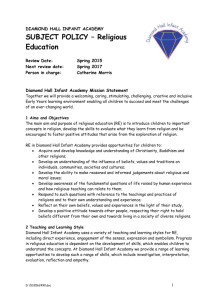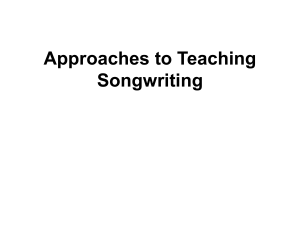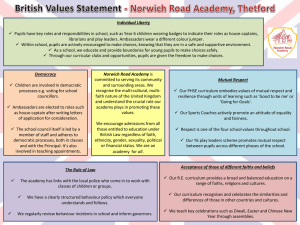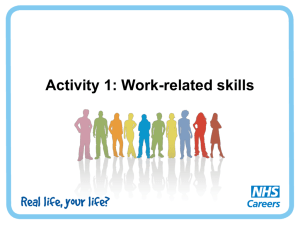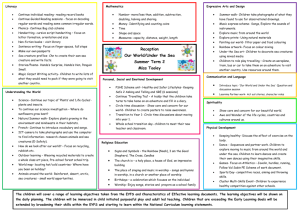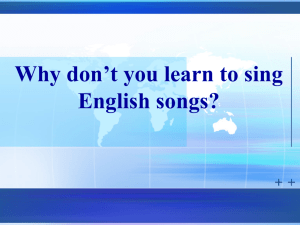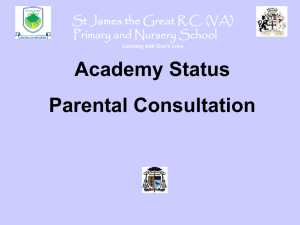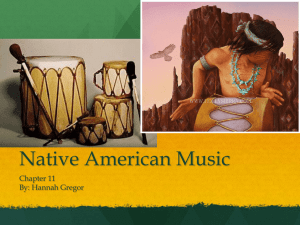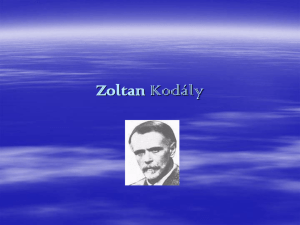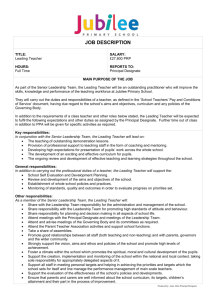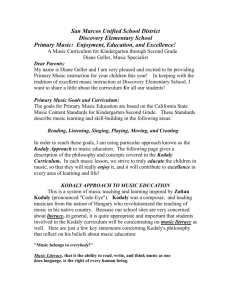Aims and objectives - Diamond Hall Infant Academy
advertisement
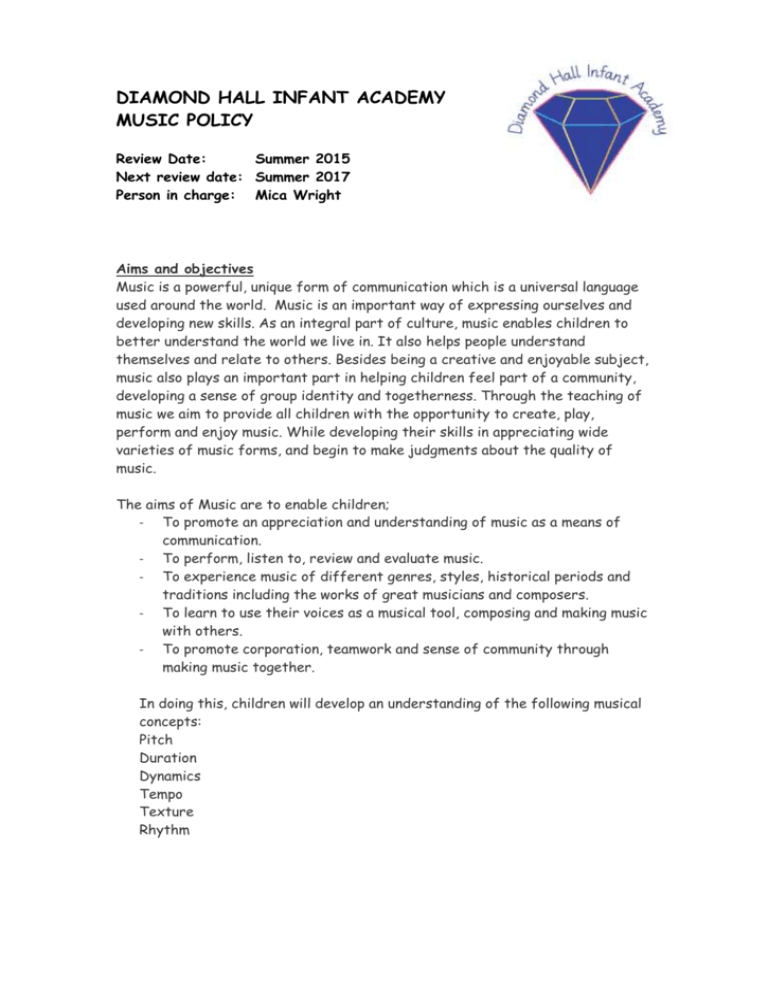
DIAMOND HALL INFANT ACADEMY MUSIC POLICY Review Date: Summer 2015 Next review date: Summer 2017 Person in charge: Mica Wright Aims and objectives Music is a powerful, unique form of communication which is a universal language used around the world. Music is an important way of expressing ourselves and developing new skills. As an integral part of culture, music enables children to better understand the world we live in. It also helps people understand themselves and relate to others. Besides being a creative and enjoyable subject, music also plays an important part in helping children feel part of a community, developing a sense of group identity and togetherness. Through the teaching of music we aim to provide all children with the opportunity to create, play, perform and enjoy music. While developing their skills in appreciating wide varieties of music forms, and begin to make judgments about the quality of music. The aims of Music are to enable children; - To promote an appreciation and understanding of music as a means of communication. - To perform, listen to, review and evaluate music. - To experience music of different genres, styles, historical periods and traditions including the works of great musicians and composers. - To learn to use their voices as a musical tool, composing and making music with others. - To promote corporation, teamwork and sense of community through making music together. In doing this, children will develop an understanding of the following musical concepts: Pitch Duration Dynamics Tempo Texture Rhythm Teaching and learning style At Diamond Hall Infant Academy we use a wide variety of teaching and learning styles in music to ensure the children are exposed to a rich, varied and fulfilling learning environment. A whole school singing assembly takes place every week, during which the children learn and practise singing techniques and a wide range of songs. These songs are often linked the current season or time of year where possible. We also have school songs which are taught throughout the year on a cycle. During our weekly assemblies we also expose children to arrange of music which is their ‘walk in music’ for that week. The children walk in the assembly in silence to appreciate and respect the music. At the front of the hall the children are able to read the name of the music and composer. All classes often take part in informal singing sessions using the class teachers ‘experience, ideas and activities during the school day to enhance learning and music. Through the teaching of music we aim to encourage a wide range of teaching styles, including whole-class instruction, individual development and group work. Tasks are differentiated both by outcome and design, and group structures may be of ability, mixed abilities, age or friendship depending on the style of lesson and what the teacher thinks appropriate to that lesson. Inclusion and Diversity (including SEN) At Diamond Hall Infant Academy we believe that music should be experienced and enjoyed by all. Therefore all pupils have equal access to the Music Curriculum. Should a child have a specific need, the school will endeavour to make provisions for that child. The needs of the children are met through careful specific planning. The needs of the musically gifted and the less able are recognised and met through: - Differentiated questioning - Differentiated tasks set -Appropriate grouping Planning Planning in regards to Foundation Stage Opportunities and provisions, teaching and learning objectives in Nursery and Reception are derived from Development Matters and Early Years Learning Goals within the EYFS curriculum. The children learning include music, art, dance and imaginative play. The children are taught specific skills alongside having the opportunity to explore and create. Music provisions in EYFS take place in a variety of ways: through continuous music provision within the indoor learning environment and the outdoor environment. The Early year’s environment allows the children to experiment with music. Planning is based on the rhythm and beat of the music which includes exploring music through a range of un-tuned musical instruments. Planning in regard to Key Stage 1 Diamond Hall Infant Academy follow the National Curriculum, adapting this to the local circumstances of our school. We use the topic, a child’s interest and current events to influence planning. Planning builds on a child’s prior learning, ensuring children are challenged as they progress through the school. Children have access to music throughout school in Key Stage 1, this is within the indoor and outdoor learning environment. Music is embedded throughout school in directed teaching time, Independent learning time, dinner time and break time. Planning takes place in 3 stages long term, medium term and short term. Long term planning is in relation to music throughout the school. This plan looks at music in all areas of the school and how this can be linked to current events and topics. Medium term planning outlines the various objectives which should be covered within that term this also states the topics of each year group and music which is related to this topic for use throughout the term. Short term planning is planned by the teacher this planning with state objectives covered in lessons and lessons taking place the music leader is also responsible for overseeing this planning and supporting colleagues. Cross curriculum links Where possible the school encourages cross curriculum links with music. Wherever possible music is linked to other areas of the curriculum, particularly class topics. In Key stage 1 we use music to encourage fluency of fast recall in Numeracy. Children are exposed to Numeracy songs at the start of the lesson to promote Numeracy ability. We also encourage the use of rhyme and rhythm throughout school during different parts of the day which increases the children’s motivation and maximise their progress. Assessment and recording Assessments of pupils music work is ongoing; pupils work and progress are recorded through mainly observation of pupils working, appropriate questioning and evaluating any music work. Assessments are made in relation to the Early Learning Goals (EYFS) and the attainment targets for KS1 set out in the National Curriculum. Staff will record the progress made by children in line with the learning objective. This will ensure teacher can make a judgment against the National Curriculum levels of attainment at the end of the year. Assessing this way not only informs future planning but also provides information for a pupil’s assessments, parent’s discussions and annual reports. Immediate feedback is orally shared with the children during music lessons in terms of positive elements of their work and improvements which are identified together with the children, ensuring they are aware of their next steps and how they can progress in their learning. Resources There are a wide range of music resources throughout school. We keep some resources in a central location for easy access for all staff members. These resources are located in the studio near Year 2. All staff are aware of these resources and the labelled baskets which they are stored in and returned to. KS1 also have access to a number of violins, keyboards and ukuleles. Year groups also have a range of CD’s and musical resources in addition to this. Additional music teaching Children in Year 2 are offered the opportunity to study violin during school time although parents wanting their children to participate in these sessions will pay the addition music lesson fees on a half termly basis. These lessons are taught in small groups of children during the curriculum time. Drama club which is held after school free of charge is linked closely with music. Drama club uses a range of music to support their acting linking singing and using instruments. Dance and street dance is also clubs which are held after school and are linked with music. The children are exposed to different genres of music which they can link with movement and feelings. Computing Where appropriate in all Key Stages children will use computing to enhance their learning of Music. Children may use computer programmes to compose simple music. Children will also use Ipads to record their performances and watch back to evaluate and improve their own performance. In Key stage 1 children will record performance and evaluate as a group. National Curriculum Programme of study In KS1 children should be taught to; use their voices expressively and creatively by singing songs and speaking chants and rhymes play tuned and untuned instruments musically listen with concentration and understanding to a range of high-quality live and recorded music experiment with, create, select and combine sounds using the interrelated dimensions of music. Spiritual, Moral Social and Cultural Listening, creating or performing music can sometimes be a moving and even spiritual experience. At Diamond Hall Infant Academy we have great involvement and links with our local Church where the children have opportunities to perform songs and hymns from various artists. We encourage children to reflect on the important effect that music has on people’s moods, senses and quality of life. Children at Diamond Hall Infant Academy have the opportunity to encounter music from many cultures and, through their growing knowledge and understanding of the music, they develop more positive attitudes towards other cultures and societies. Monitoring and review Monitoring and reviewing music is carried out by the Music Co-ordinator, across all Early years and Key Stage 1 and includes: - - Reviews of teacher’s planning to assess curriculum coverage, progression, appropriate adaptations, annotations and informal assessments. Monitoring of pupil work and performance by talking to children about their learning. Observation of teaching and learning during music lessons. Moderation of any written, pictorial or recorded work. Staff meetings and INSET to discuss consistency across the school, standards and expectations and where appropriate to update/maintain staff knowledge. Involvement of link governors in development of the subject. Evaluation of extra-curricular activities, e.g. violin lessons
